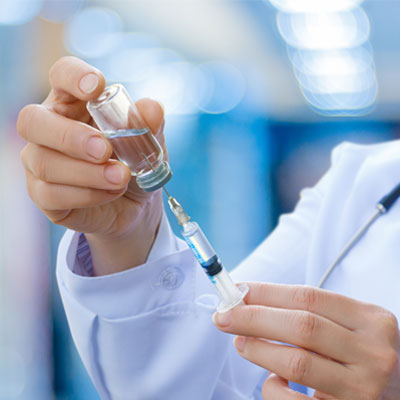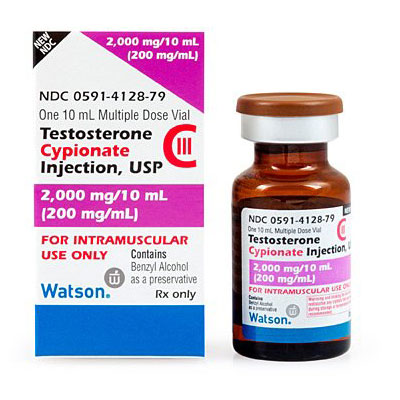What Is Testosterone Undecanoate and Should I Use It?
Contents

Testosterone undecanoate indications are no different than any other form of testosterone therapy. If a man has clinical symptoms of Low T along with blood test results that show testosterone deficiency, he is a potential candidate for testosterone hormone replacement therapy.
Indications of the need for testosterone undecanoate include:
- Muscle loss
- Height shrinkage
- Joint pains and stiffness
- Weight gain
- Fatigue
- Hair loss
- Depression
- Low libido
- Erectile dysfunction
- Mood changes
- Lack of motivation or productivity
- High cholesterol and triglyceride levels
- Elevated blood pressure
- Memory loss
- Poor concentration
- Impaired cognitive functions
Testosterone therapy is beneficial for men with either primary or secondary hypogonadism due to any of the following:
- Genetic abnormalities
- Tumors of the pituitary, hypothalamus, or testes
- Chemotherapy
- Radiation
- Brain trauma
- Other causes of Low T
Testosterone undecanoate injections are intramuscular, administered to the upper outer quadrant of the buttocks. This treatment is for men only and not intended for use by women.
Testosterone Undecanoate is a long-lasting injectable form of testosterone therapy for use by men.
What Are the Benefits of Testosterone Undecanoate?
The first benefit of getting a testosterone undecanoate injection is the reduced frequency of treatment. With testosterone enanthate, most men require weekly shots. Testosterone cypionate lasts longer than testosterone enanthate, with injections on average of once every 10 to 14 days. The administration of testosterone undecanoate is one injection, followed by a second 4 weeks later. Subsequent treatments occur once every 10 weeks.
In general, testosterone undecanoate benefits are the same as any other form of supplemental testosterone, including:
- Increased lean muscle mass resulting in better strength
- Reduced bodily stiffness and joint pains
- Improved bone mineral density decreasing the risk of osteoporosis and fractures
- Deeper, more sound sleep at night
- Better energy and endurance
- Loss of abdominal belly fat
- Improved emotional state and reduced feelings of depression
- Enhanced sexual desire and responses
- Sharper brain functions and focus
Another benefit of testosterone undecanoate is that half of the dosage remains near the site of injection for up to 8 weeks after administration. Unlike testosterone cypionate and enanthate which can produce highs and lows following and near the end of the treatment cycle, respectively, testosterone undecanoate maintains a more even level of testosterone in the bloodstream. The half-life of testosterone undecanoate can span 18 to 24 days.
Testosterone undecanoate has the longest treatment cycle and offers the same benefits as other types of testosterone therapy.
Although the benefits of testosterone undecanoate for TRT may seem appealing due to the long interval between treatments, there are numerous risks involved that prevent many doctors from prescribing this option.
Testosterone undecanoate warning:
- Aveed has been linked to serious pulmonary oil microembolism (POME) reactions as well as anaphylaxis – POME reactions may include tightening of the throat, significant urge to cough, dizziness, chest pain, dyspnea, syncope, and anaphylaxis. These reactions may occur during the administration of testosterone undecanoate or immediately after. For these reasons, treatment must be in the doctor’s office or medical facility. The individual will need to remain at the location for a minimum of thirty minutes following each treatment as a precaution.
- Even if no reaction has occurred in the past, the thirty-minute requirement is necessary after each subsequent treatment as reactions can occur at any time.
- Aveed falls under a restricted program due to its potential for side effects and adverse reactions.
The doctor will set the testosterone undecanoate dosage for each person. Currently, very few doctors in the US prescribe Aveed for use to treat testosterone deficiency. Aside from the risk factors, the cost of testosterone undecanoate is extremely high. Many safer, less expensive options are available to treat Low T in males.
Due to the high risk of adverse reactions and expensive cost, testosterone undecanoate is not recommended for the treatment of Low T in males.
Does Testosterone Undecanoate Need a Prescription?
A testosterone undecanoate prescription is mandatory to receive this treatment. Under no circumstances should anyone purchase testosterone undecanoate online without a prescription. Life-threatening reactions could occur with unsupervised testosterone undecanoate use.
Two forms of oral testosterone undecanoate, Tlando and Jatenzo were denied approval for sale in the US in January 2018. Both treatments had received negative votes in the past and had not overcome the initial concerns of the FDA during this second round of requests.
Doctors do not typically recommend oral testosterone for use due to a high level of hepatotoxicity risk. Oral testosterone processes through the liver, which causes serious concern. A potential benefit of oral testosterone undecanoate is its formulation that makes it more lipophilic. This allows for the absorption of testosterone through the intestinal lymphatic system rather than the liver.
Jatenzo increased the risk of elevated heart rate and need for antihypertensive medication. Tlando also increased heart rate, as well as lowering HDL cholesterol levels below normal – two concerns for the panel.
Testosterone undecanoate injections require a doctor’s prescription. Oral testosterone undecanoate is not yet approved for use in the US.
How Do You Get Testosterone Undecanoate?
To get testosterone undecanoate for sale in the US, you must first contact a hormone specialist to undergo diagnostic testing for testosterone deficiency. Following comprehensive blood analysis, consultation, and physical examination, the doctor will determine if you have Low T. If so, and there are no contraindications such as active malignancy, you may be cleared to receive some form of testosterone therapy.
Again, do not buy testosterone undecanoate online without a doctor’s prescription. Also, even if you have the proper authorization, all forms of testosterone should always come from a licensed US pharmacy to guarantee quality and safety. Testosterone is a highly counterfeited medication throughout the world.
Because of the risks, testosterone undecanoate administration must be in a medical facility, and never authorized for home use. For that reason, there should be no attempt to purchase testosterone undecanoate on one’s own.
You should not attempt to buy testosterone undecanoate on your own – the medication administration requires doctor supervision.
What Are the Alternatives to Testosterone Undecanoate?
For many people, the option of getting injectable testosterone undecanoate is appealing because, after the initial two treatments, they only need one shot every ten weeks. A safer alternative to this treatment is implantable testosterone pellets. A doctor will implant the rice-sized pellets containing crystallized testosterone under the skin once every six months. Although the treatment is expensive, it eliminates the need for testosterone shots, gels, or patches. The cost for implantable testosterone pellets is high as it does require a surgical procedure.
A downside to testosterone pellets is that they can work their way out of the skin, reducing the effectiveness of the treatment. Another issue is that side effects could occur that would necessitate the difficult removal of the pellets.
The better alternative to testosterone undecanoate is testosterone cypionate. Most men need only two injections a month – once every fourteen days. Testosterone cypionate provides superior absorption into the bloodstream at the lowest cost of all forms of testosterone replacement therapy. Second to that is testosterone enanthate injections – the once a week shot that offers the same benefits at a slightly higher cost.
Testosterone patches for the skin are effective yet expensive. Also, there is no way of determining how much testosterone the body absorbs through the skin into the bloodstream. Testosterone gels provide the same type of treatment, also at a higher cost. Another potential risk of all transdermal testosterone is cross-contamination to anyone else who might come into contact with the treated skin.
Another relatively new form of treatment for Low T is transbuccal tablets that adhere to the gums. There is also a higher expense with this type of testosterone therapy as you will apply two tablets each day. Side effects include gum soreness, pain, irritation, changes in taste, and the risk of swallowing resulting in liver toxicity.
Finally, a nasal testosterone gel is also available that reduces the cross-contamination risk, albeit at a higher price than testosterone cypionate injections.
For additional information about testosterone undecanoate or any other forms of testosterone replacement therapy, please contact our hormone clinic. Free telephone consultations help you maintain a high level of privacy when discussing testosterone deficiency symptoms and concerns.
Contact our clinic for a free consultation to discuss testosterone undecanoate alternatives that are safer to use and considerably lower in cost.
- Michael Zitzmann, Prof., MD., PhD., FRSM., FECSM., Andreas Mattern, PhD., Jens Hanisch, PhD., Louis Gooren, MD., PhD., Hugh Jones, MD., PhD., Mario Maggi, MD., PhD.
- G Y Zhang, Prof., PhD., Y Q Gu, X H Wang, Y G Cui, W J Bremner
- U.S. National Library of Medicine
- U.S. National Library of Medicine
- Ronald S Swerdloff, MD., Christina Wang, MD., William B White, MD., Jed Kaminetsky, MD., Marc C Gittelman, MD., James A Longstreth, PhD., Robert E Dudley, PhD., Theodore M Danoff, MD., PhD.
IPASS: a study on the tolerability and effectiveness of injectable testosterone undecanoate for the treatment of male hypogonadism in a worldwide sample of 1,438 men
A pharmacokinetic study of injectable testosterone undecanoate in hypogonadal men
A Study of Oral Testosterone Undecanoate (TU) in Hypogonadal Men (inTUne)
Safety and Efficacy Trial of Testosterone Undecanoate
A New Oral Testosterone Undecanoate Formulation Restores Testosterone to Normal Concentrations in Hypogonadal Men






